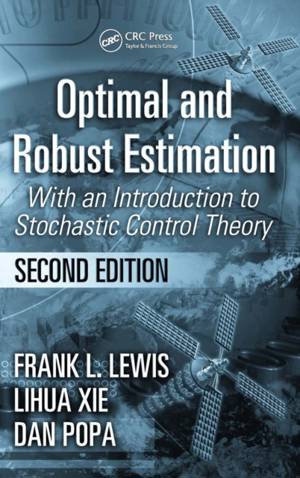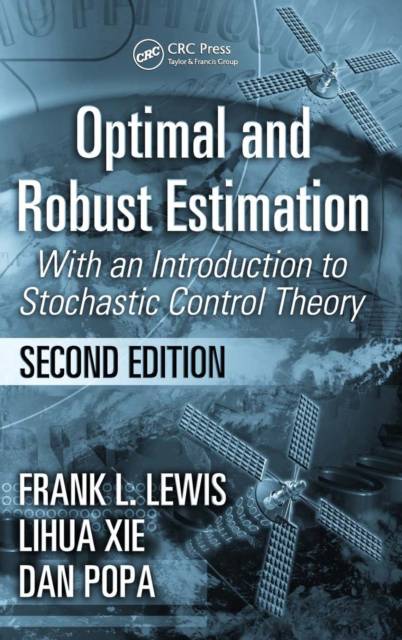
- Afhalen na 1 uur in een winkel met voorraad
- Gratis thuislevering in België vanaf € 30
- Ruim aanbod met 7 miljoen producten
- Afhalen na 1 uur in een winkel met voorraad
- Gratis thuislevering in België vanaf € 30
- Ruim aanbod met 7 miljoen producten
Zoeken
Optimal and Robust Estimation
With an Introduction to Stochastic Control Theory, Second Edition
Frank L Lewis, Lihua Xie, Dan Popa
€ 343,45
+ 686 punten
Omschrijving
The updated edition of this classic text reflects new developments in estimation theory and design techniques. The major feature of this text is the inclusion of robust methods. Three new chapters cover the robust Kalman filter, H-infinity filtering, and H-infinity filtering of discrete-time systems. The book overflows with examples that highlight practical applications of the theory and concepts. Design algorithms appear conveniently in tables, allowing students quick reference, easy implementation into software, and intuitive comparisons for selecting the best algorithm for a given application. In addition, downloadable MATLAB(R) code allows readers to gain hands-on experience.
Specificaties
Betrokkenen
- Auteur(s):
- Uitgeverij:
Inhoud
- Aantal bladzijden:
- 552
- Taal:
- Engels
- Reeks:
- Reeksnummer:
- nr. 26
Eigenschappen
- Productcode (EAN):
- 9780849390081
- Verschijningsdatum:
- 1/06/2007
- Uitvoering:
- Hardcover
- Formaat:
- Genaaid
- Afmetingen:
- 165 mm x 237 mm
- Gewicht:
- 893 g

Alleen bij Standaard Boekhandel
+ 686 punten op je klantenkaart van Standaard Boekhandel
Beoordelingen
We publiceren alleen reviews die voldoen aan de voorwaarden voor reviews. Bekijk onze voorwaarden voor reviews.







